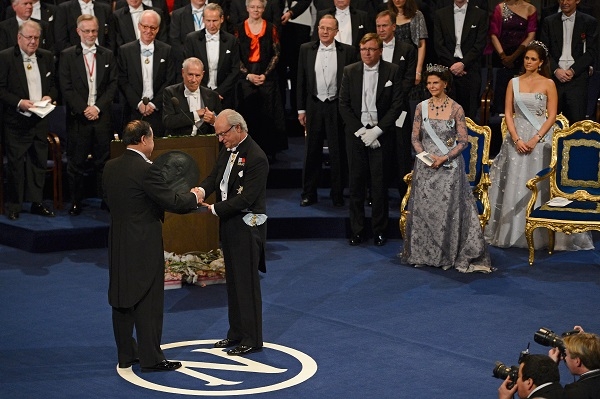– Hong Kong
Imagine if every British novel published since the 1940s was about the Second World War. That’s about as accurate a view of contemporary China held by readers in the Anglophone West, say experts here.
On the eve of this year’s Man Asian Literary Prize announcement, it’s worth considering why that’s still the case. The prize celebrates Asian literature written in, or translated into, English. While eligible authors span the continent from Japan to Iran, all previous winners have come from East Asia, and three out of those five from China.
Harvey Thomlinson, a Hong Kong-based publisher, also had a mission to highlight quality Chinese literature in English translation. Internet fiction and experimental short stories are two ways in which younger writers are contributing to the variety of authorship in China.
However, Thomlinson noticed that the range of Chinese fiction selected for translation by trade publishers in the West ‘tended to be restricted to a few genres that aren’t representative of the diversity of Chinese writing today’.
The reasons for this are firstly economic, reckons Julia Lovell, author of The Opium War: ‘Most books have to turn a profit for publishers, and this can make editors and their boards quite conservative about their choices. They need to look for books that seem to recapitulate styles and ideas that have worked in the past. Anything new will, of course, seem a risk.’
One experienced literary agent here puts it more bluntly: ‘For Western publishers and readerships, there’s a certain expectation of what China is, and if they don’t get it they don’t like it.’ While the agent concedes that attitudes are changing for the better, cultural biases coupled with the need for a successful product have nonetheless helped to establish a template for translated Chinese fiction.
The stories usually take place in the past, not the present, and in rural rather than urban settings, according to Thomlinson. The Cultural Revolution memoir is one type. As dominant examples of Chinese writing in the West, books like these have helped to perpetuate a skewed idea of the country’s modern literature and culture.
But the onus is not on Western publishers to teach people about contemporary China, says Kelly Falconer, a literary agent and former editor at the Asia Literary Review in Hong Kong. Their job is to make money, not to prescribe taste. ‘I don’t think the West is getting a fair representation of what’s coming out of China. The question is, would they read it?’ she says.
The problems that undermine Chinese publishing are several, from state censorship to poor editing and underpaid translators. Many writers in China receive government stipends and other incentives to keep them on side.
‘You can’t underestimate censorship and the impact it has had on the quality of China’s literary output,’ says Thomlinson. ‘The effect is like a dustsheet being thrown over a piano.’
Falconer contends that it’s early days for modern Chinese literature, and says the issue must be understood in the context of the Great Leap Forward and Cultural Revolution. Mao Zedong’s atrocious campaigns all but shut down education, and left a frightening number of Chinese people illiterate. Writers in China are now suffering the aftereffects, she explains.
Many of the country’s most established authors, including Nobel laureate Mo Yan, lived through these events, and continue to try and exorcise their legacy through writing. In a recent review for The Spectator of Yan Lianke’s Lenin’s Kisses, Lovell noted that the book was overwritten in parts, which is a common problem in Chinese novels.
‘Like many mainland authors, Yan can give the impression of writing at a furious speed, as if he is too outraged by the cruel absurdities of contemporary China to pause to find the most dispassionately precise language with which to describe them,’ she said.
Another result of this fury is that a lot of Chinese books, and almost all of those that find recognition in the West, are very heavy in content and style. As Falconer says, ‘A lot of what’s coming out of China now is to be appreciated, rather than enjoyed.’
She is optimistic about the variety of new Chinese writing, but remains skeptical of Western publishers who say they are looking for fresh voices from China. It will take a brave one to truly break the mold. The sooner that happens, the better.
Samantha Kuok Leese is a journalist based in Hong Kong






Comments